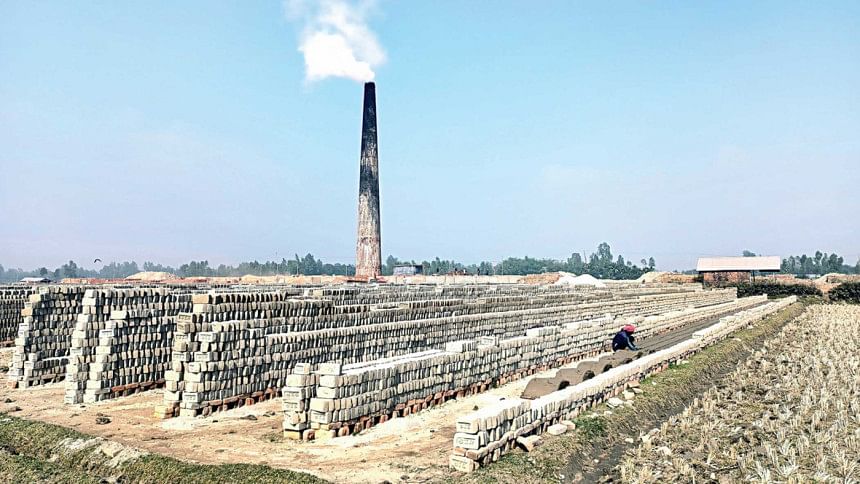How can demolished brick kilns resume operation?

It is frustrating to learn that two illegal brick kilns in Lalmonirhat Sadar upazila, demolished by the Department of Environment (DoE) in February last year, have resumed their operations in full swing. In fact, as alleged by the locals, these brick kilns actually never stopped their operations. Right after a mobile court of the department demolished them, the owners repaired them and started their operations.
The brick kilns were demolished reportedly after protests by local farmers, as their croplands were losing fertility due to the heat generated by the kilns, as well as the toxic emissions. Now that they have started running in full capacity again, the farmers fear that it will further aggravate the situation, resulting in less agricultural production.
Unfortunately, this is not the only case in which powerful businessmen have ignored directives from the authorities concerned and continued with their mindless business. In the past two years, many such closed or demolished brick kilns resumed their operations, ignoring orders from the authorities to stop them permanently. Only last year, five illegal brick kilns in Barguna district resumed their operations after being demolished by the local administration. According to reports, this has been happening in other districts, too.
The question that arises is: How can the owners of these kilns violate orders from the High Court in this regard without facing any consequences? The sincerity of the DoE as well as the local administrations in carrying out demolition drives and stopping the kilns for good also come under question.
In case of the brick kilns in Lalmonirhat, what the DoE did was partially demolishing the kilns, leaving scopes for the owners to repair those immediately and run them without much delay. Does the DoE's job end with just conducting a mobile court drive? Do they have no responsibility to monitor what happens afterwards? Would one be wrong in assuming that the demolition drive was nothing but an eyewash?
It's well known that brick kiln owners are usually powerful people, and the affected local residents and even those in the local administrations hardly raise their voices against them, fearing consequences. It is also common knowledge that, sometimes, people in the administration work as their cohorts, emboldening them to go on with their business.
We, therefore, urge the higher authorities to take immediate action against the owners of these illegal brick kilns, whose action is not only reducing our overall agricultural production, but also polluting air and ruining the surrounding environment.

 For all latest news, follow The Daily Star's Google News channel.
For all latest news, follow The Daily Star's Google News channel. 



Comments